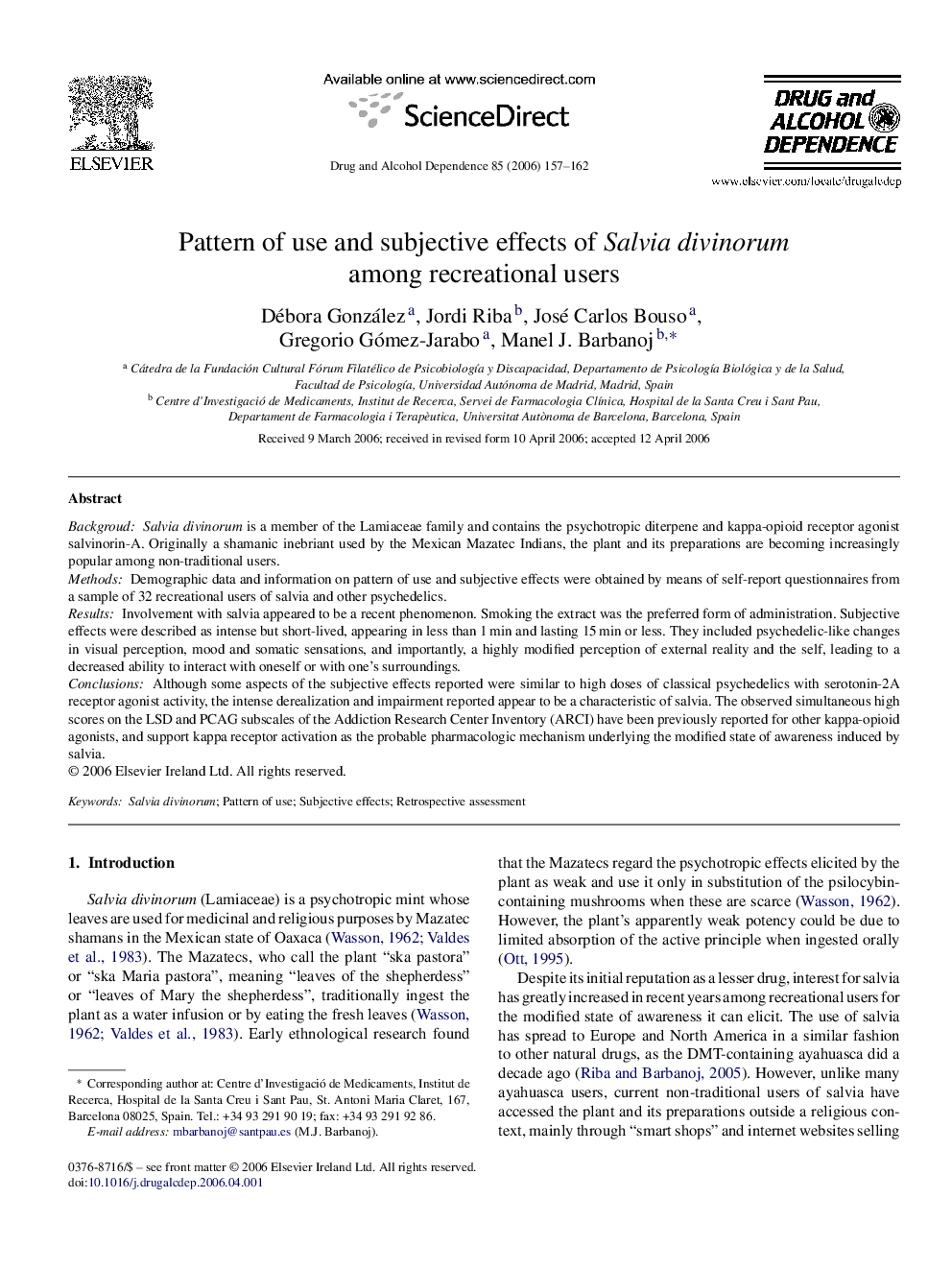| Article ID | Journal | Published Year | Pages | File Type |
|---|---|---|---|---|
| 1071411 | Drug and Alcohol Dependence | 2006 | 6 Pages |
BackgroudSalvia divinorum is a member of the Lamiaceae family and contains the psychotropic diterpene and kappa-opioid receptor agonist salvinorin-A. Originally a shamanic inebriant used by the Mexican Mazatec Indians, the plant and its preparations are becoming increasingly popular among non-traditional users.MethodsDemographic data and information on pattern of use and subjective effects were obtained by means of self-report questionnaires from a sample of 32 recreational users of salvia and other psychedelics.ResultsInvolvement with salvia appeared to be a recent phenomenon. Smoking the extract was the preferred form of administration. Subjective effects were described as intense but short-lived, appearing in less than 1 min and lasting 15 min or less. They included psychedelic-like changes in visual perception, mood and somatic sensations, and importantly, a highly modified perception of external reality and the self, leading to a decreased ability to interact with oneself or with one's surroundings.ConclusionsAlthough some aspects of the subjective effects reported were similar to high doses of classical psychedelics with serotonin-2A receptor agonist activity, the intense derealization and impairment reported appear to be a characteristic of salvia. The observed simultaneous high scores on the LSD and PCAG subscales of the Addiction Research Center Inventory (ARCI) have been previously reported for other kappa-opioid agonists, and support kappa receptor activation as the probable pharmacologic mechanism underlying the modified state of awareness induced by salvia.
